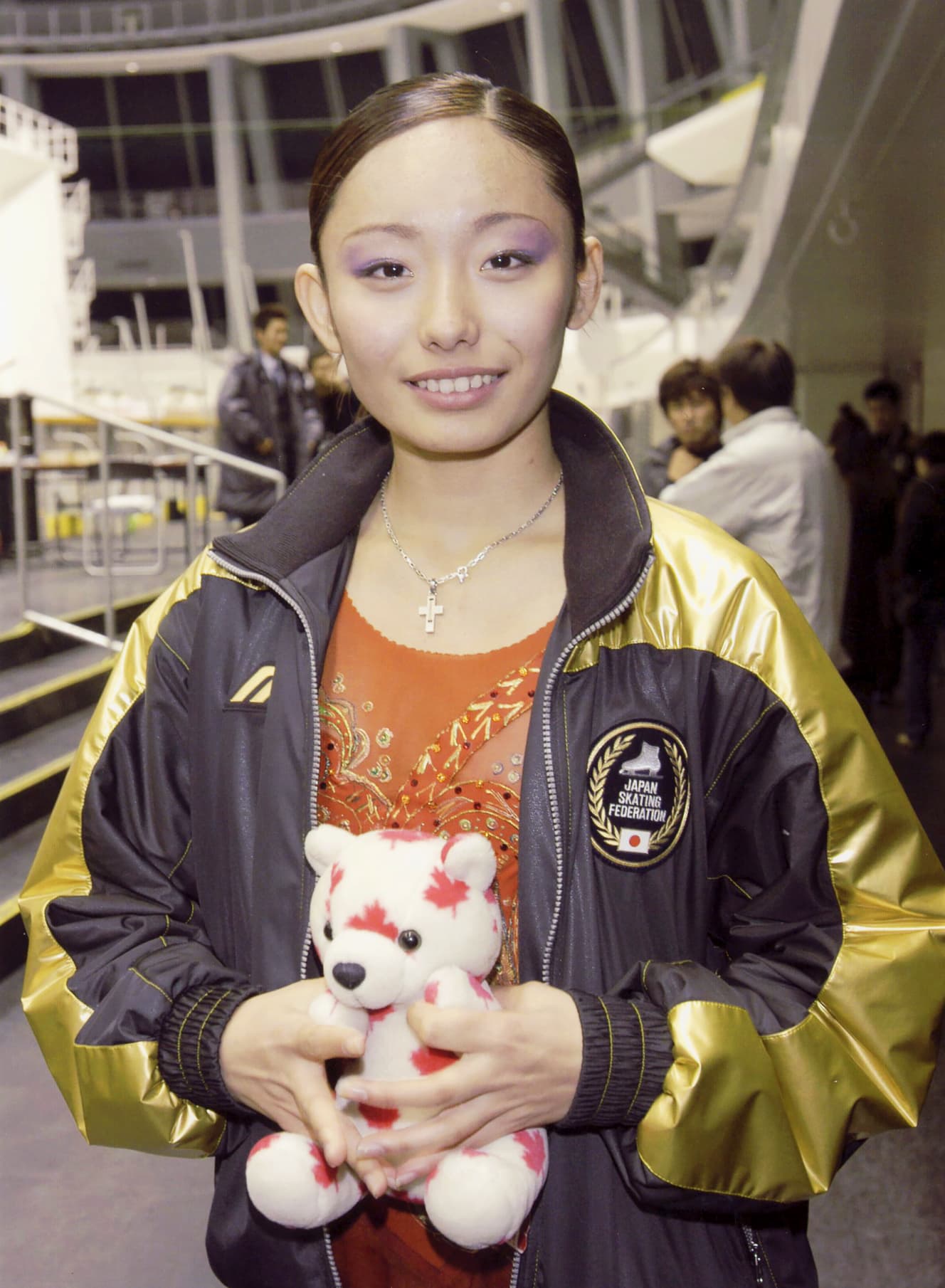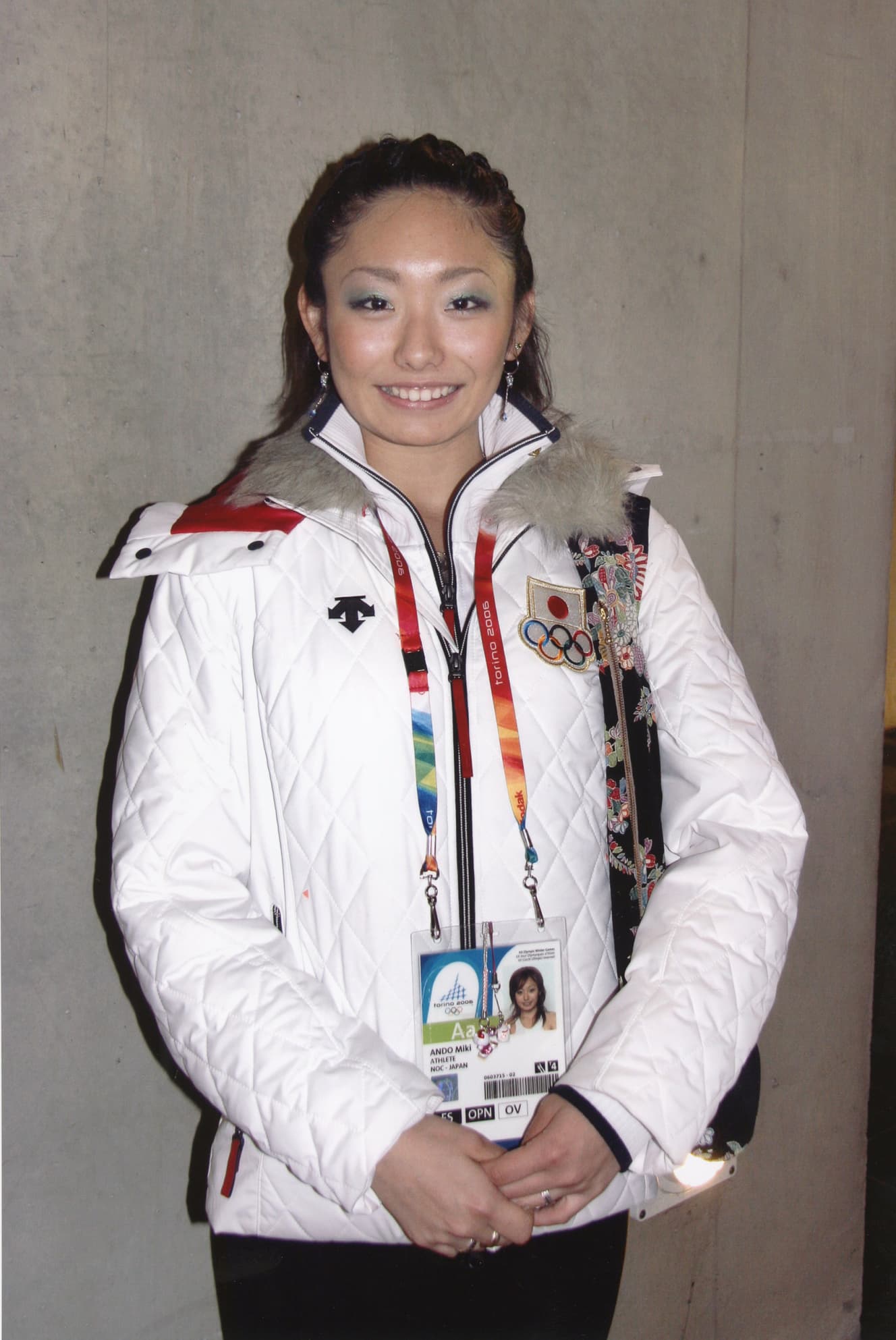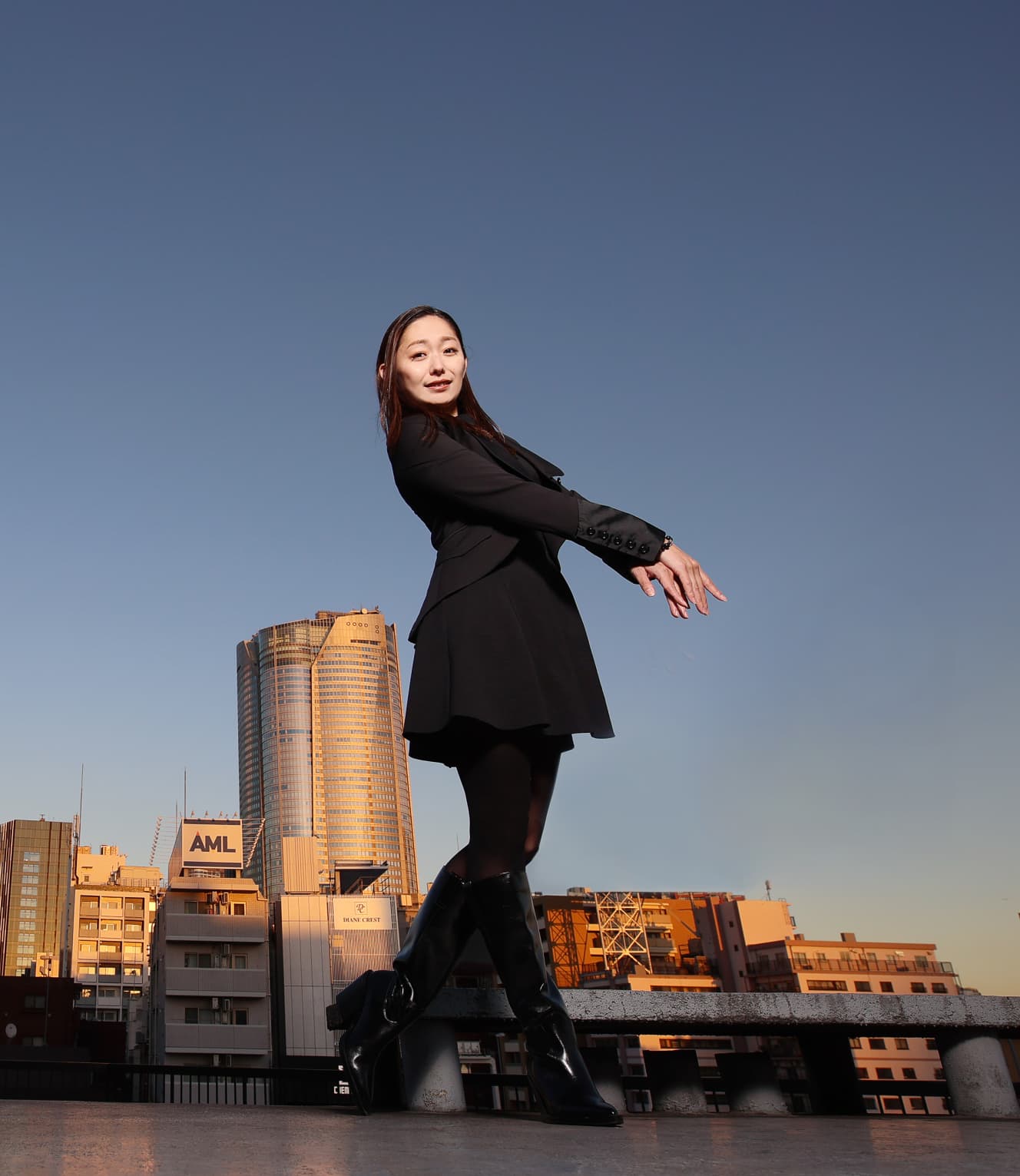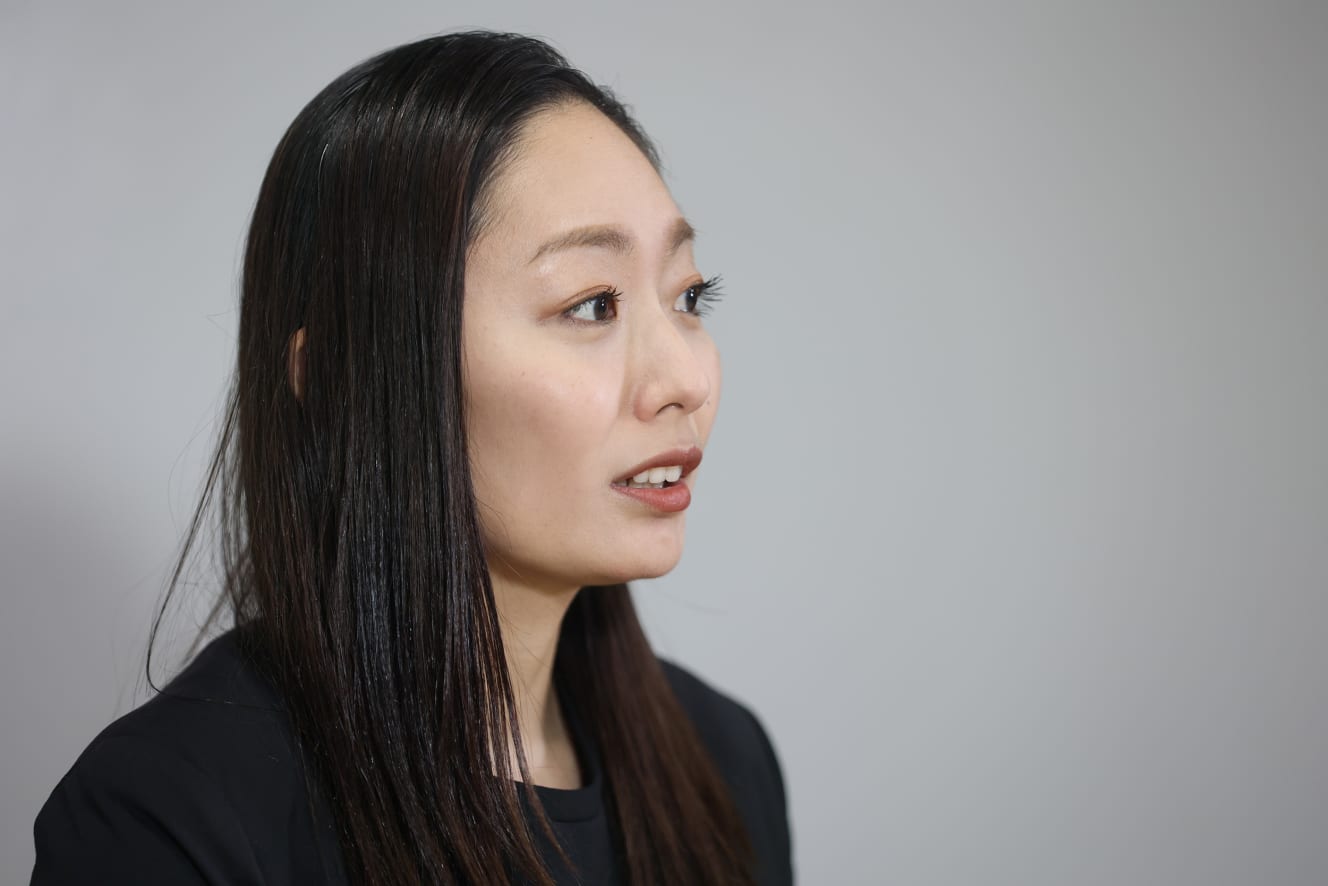Miki Ando’s 20-Year Confession: Sports Inspire and Empower Imperfect Humans
A Time to Restart - Thoughts that led her to the end of her "days of suffering," having been in the spotlight since her high school days.

“I never felt at ease, I was scared.”
Staring straight into the interviewer’s eyes, she carefully selected her words one by one. Her demeanor seemed far removed from the “determined” image the public had of her.
“Since the Torino Olympics, I might have stopped trusting anyone deeply. I particularly feel that way now. There were many times when I trusted others unilaterally, only to end up in a painful situation.”
In 2007 and 2011, Miki Ando became the world champion twice, and also participated in two consecutive Winter Olympics in Torino and Vancouver. Despite her brilliant achievements as a professional figure skater, she was not always met with positive attention from the public.
She often performed roles like Carmen and Cleopatra, portraying “strong and seductive women,” which led to a created image of her walking on its own.
“My best friend says, ‘Miki laughs a lot, but she has a weak side mentally, and I’ve never thought she’s competitive or scary.’ I think there’s a gap between the public’s image of me and the real me. Even so, I feel like it’s up to the public to judge. I don’t think it’s right to loudly deny it by saying, ‘I’m not that kind of person!'”
Ando has been in the public eye since her teenage years. At 14, she became the first female athlete to land a quadruple jump in an official competition, and at 16, she won her first national title. When she qualified for the 2006 Torino Olympics, her status as a high school student added to the national excitement. From then on, every move she made off the ice garnered attention.
“There were reporters and cameramen waiting in front of my house or school, and they would talk to me. No matter where I went, it felt like I was being followed, and I couldn’t find peace, which was scary.”
During a period of physical changes due to age, cruel bashing from the audience about her body—calling her “too fat” or telling her to “lose weight”—also tormented her.
“I drastically reduced my carbohydrates, even worried about the little oil I used for the omelette and made it in the microwave. But still, my weight wouldn’t drop. It was natural for me to gain weight during my growth period, but at that time, I couldn’t stand my body shape.”
At the Torino Olympics, Ando finished 15th due to a foot injury right before the event and faced severe criticism, including statements like, “We don’t need athletes who can’t produce results.” Ando chuckled bitterly, saying, “I don’t really have any memories of that time.”
“I think it was so painful that I had to erase it from my memory in order to move forward. I didn’t want to go outside at all. I didn’t even want to face my family, and there was a time when I secluded myself in my room.”
Though social media didn’t exist at the time, Ando received thousands of hateful letters directly.
“Right after Torino, I honestly thought about quitting skating. I loved skating, but if continuing would ruin my life, then I had no choice but to quit. I was pushed to that point.”
“I want to be honest.”
The turning point that helped Ando emerge from despair was her decision to move her training base. She relocated to the United States during the 2006-2007 season, after the Torino Olympics. Ando reflects that this decision had a huge impact on communication.
“At that time, I couldn’t speak English very well, so when my host mother asked, ‘What do you want to eat?’ I would hesitate and answer, ‘Anything’s fine.’ Eventually, she told me, ‘I don’t know what Miki is thinking. You should speak your mind more clearly.’ Nicolai (Morozov), who became my coach that year, often told me, ‘What does Miki think? You are the one skating, so you should speak up.’ When I was in Japan, I used to suppress myself out of fear of criticism, but I realized that I have feelings and thoughts too. I don’t need to hide them.”
Since then, Ando has been expressing her thoughts and feelings openly, regardless of the situation. In interviews before competitions, she honestly admitted things like, “I couldn’t practice as much as I wanted due to an injury.” However, this honesty still led to criticism, with people claiming, “She’s just making excuses for when she fails in the competition.” Despite her desire to “remain honest and true to her emotions,” her intentions were often misunderstood.
“In interviews, I can often sense what kind of answer they want. So, I thought giving the answer they were looking for would make the journalists happy. But I didn’t want to say something I didn’t believe in. I don’t skate for the media, and I don’t want to lose myself.”
Even after retiring from competition following the 2013 Japanese Nationals, Ando’s statements on social media and in the media were often taken out of context and led to flaming. Ando admits that there were times when she felt frustrated by the misunderstanding of her true intentions and wanted to clear up the misconceptions.
“A few years ago, I explained myself thoroughly on social media to some ‘haters,’ saying, ‘This is the intention behind what I said.’ But the more I explained, the more it led to people accusing me of ‘making excuses,’ and the backlash escalated. I thought that if I talked things through properly, people would understand, but that seems to have been an illusion.”
In recent years, online abuse toward athletes has become a major issue. During the 2024 Paris Olympics, the Japanese Olympic Committee issued a statement urging people to maintain proper conduct when posting on social media due to the widespread online abuse.
“I haven’t completely overcome bashing myself, and I’m still hurt by thoughtless comments. I want people to think about how it feels when something you’ve worked passionately on is criticized without understanding its background. Of course, athletes can’t always give their best, and there are times when results don’t come. But that’s because athletes are human. It’s because imperfect humans are competing that sports bring emotion and courage. I hope people can understand that.”
What supported Ando were those who were always by her side as absolute allies, no matter the time. Ando reflects calmly.
“Of course, my family, and in my skating life, Nicolai’s presence was significant. People from my alma mater, Chukyo University, and my former bosses at Toyota Motors also played a big role. After giving birth in 2013, I returned to competition despite facing criticism, and my daughter was a big reason. Even though she didn’t understand when she was born, I wanted her to feel the importance of never giving up someday, which made me able to take on the challenge.”
She was, of course, supported by her fans. The reason she was able to rise from the depths after the Torino Olympics was because of the words of a woman who came to watch her in Torino.
“Outside the venue in Torino, a woman said, ‘I was inspired by your challenge to the quadruple jump on the big stage. Thank you.’ That stayed with me. If there are people who think like that, I felt it was worth continuing to skate. A single positive word outweighed thousands of negative ones.”
To come back with a smile
Last year was a challenging year for Ando, unlike any she had faced before. She had to leave her students, whom she had been coaching, before her mission was complete. There was a sense of regret in her voice as she reflected on not being able to continue her coaching journey.
“I feel a strong sense of responsibility as an adult for making my students and the sponsors who supported me feel sad.”
In addition to coaching, she had also been performing in ice shows, but those appearances have now been put on hold. However, Ando revealed that due to the connections she has built, she still receives invitations for skating events.
“There are still people who value me as a skater. Even within the skating world, there are people who reach out to me, even though they gain nothing from it, and I am filled with gratitude. In a way, this might be a time for me to discern who truly needs me.”
Recently, Ando has started to resume her work as a coach by accepting offers from overseas athletes and conducting remote lessons.
“I’ve also received personal offers from parents of athletes I’ve coached in the past, asking if I would coach their children again. I know it’s a difficult situation, but if there are athletes who need me, I want to face them with sincerity moving forward.”
Many fans likely wish to see her perform again. When asked about this, Ando shyly replied, “Maybe there aren’t that many.” before continuing.
“Because there are people who believe in me and wait for me, I can keep going. It may take some time, but I want to move forward little by little so that I can stand in front of everyone again with a smile. My eldest daughter is growing up and now says, ‘Mom, who skates, is the coolest.'”
It’s rare to find a figure skater who has experienced as many highs and lows as Ando. Having overcome countless trials, she will undoubtedly rise again with strength.









From the January 24/31, 2025 issue of “FRIDAY”
PHOTO: Takehiko Kohiyama, Yukiko Fukuyama (4th and 5th photos)